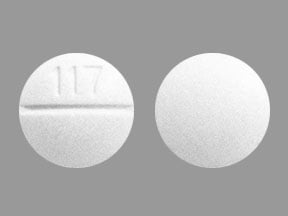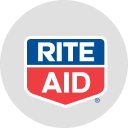
Oxycodone-aspirin Coupons & Savings Card – Discount Prices from $39.42
My prescription
Edit
4.8355-325MG, Oxycodone-aspirin (30 Tablets)
Select pharmacy

CVS
$65.83
COUPON PRICE
Rite Aid
$39.42
COUPON PRICE
Walgreens
$42.45
COUPON PRICEOxycodone-aspirin savings card
Show this card to your pharmacist
Rite Aid
$39.42
BIN
ID
PCN
GRP
019876
LH70D72E7C
CHIPPO
LHX
Powered by
Oxycodone-aspirin dosage forms
| Dosage | Quantity | Price from | Per unit |
|---|---|---|---|
| 4.8355-325MG | 30 Tablets | $39.42 | $1.31 |
Oxycodone-aspirin Warnings
Oxycodone/aspirin is associated with a significant risk of abuse and dependency, potentially leading to overdose and fatality. It may also cause severe and potentially life-threatening respiratory issues. To mitigate these risks, it is crucial to use the smallest effective dose for the shortest duration possible, as advised by your healthcare provider.
Here are important safety considerations:
Opioid Overdose Preparedness: Discuss with your healthcare provider whether you should have naloxone available for opioid overdose emergencies. Make sure family members or those you live with are educated about the signs of an opioid overdose and the appropriate response.
Breathing Risks: The likelihood of experiencing serious breathing problems is heightened when starting this medication, increasing the dose, or taking an incorrect dose. Combining this medication with alcohol or other substances that induce drowsiness or respiratory issues can lead to severe side effects, including death.
Drug Interactions: Some medications can interfere with how oxycodone/aspirin is processed by the body, affecting its efficacy. It is important to understand which medications should not be taken concurrently with oxycodone/aspirin.
Emergency Symptoms: Seek immediate medical attention if you experience extremely slow or shallow breathing, unusual lightheadedness, severe drowsiness or dizziness, or difficulty in waking up.
Storage and Safety: Store this medication securely to prevent theft, misuse, or abuse. In the event of accidental ingestion, obtain medical assistance immediately.
Following these precautions can significantly reduce the risks associated with oxycodone/aspirin use. Always adhere to the guidance provided by your healthcare professional.
Oxycodone-aspirin Side Effects
Common side effects:
- nausea
- vomiting
- upset stomach
- constipation
- dizziness
- drowsiness
- headache
- increased sweating
- dry mouth
- lightheadedness
weakness
Less common but important to monitor:
- persistent nausea
- interrupted breathing during sleep
- irregular heartbeat
- mood changes like depression or confusion
- difficulty urinating
- ringing in the ears
- changes in vision
- easy bruising or bleeding
- severe stomach pain
- black stools
- vomit resembling coffee grounds
- yellowing of the skin or eyes
- dark urine
- signs of kidney issues
- adrenal gland dysfunction
- changes in urine output
unexplained weight loss
Serious side effects:
- slow or shallow breathing
- fainting
- seizures
- severe drowsiness
- severe allergic reaction
- fever
- swollen lymph nodes
- rash
- swelling particularly around the face or throat
- severe dizziness
- difficulty breathing
Oxycodone-aspirin Interactions
When using oxycodone/Aspirin, it's important to be aware of potential interactions with other medications. This drug can interact with a variety of medicines, including Acetazolamide, certain cancer treatments like Mercaptopurine and Methotrexate, pain medications such as Butorphanol, Nalbuphine, pentazocine, and others like Cimetidine, corticosteroids (e.g., Prednisone), Mifepristone, Naltrexone, and samidorphan.
Taking this medication can increase bleeding risk if combined with other drugs that also cause bleeding, such as anti-platelet agents like Clopidogrel or blood thinners like Dabigatran, Enoxaparin, and Warfarin. Consult your doctor if you've recently had live vaccines, such as the varicella or live flu vaccines.
Certain drugs can affect how oxycodone is removed from your body, potentially altering its effectiveness. These include azole antifungals (e.g., Ketoconazole), macrolide antibiotics (e.g., Erythromycin), HIV medications (e.g., tipranavir), rifamycins (e.g., Rifabutin, Rifampin), Ritonavir, and seizure medications like Carbamazepine and Phenytoin.
The risk of severe side effects like slow or shallow breathing, and extreme drowsiness can increase if oxycodone/aspirin is taken with other substances that cause drowsiness or breathing issues. This includes other opioids (e.g., codeine, Hydrocodone), alcohol, marijuana, sleep or anxiety medications (e.g., Alprazolam, Lorazepam, Zolpidem), muscle relaxants (e.g., Carisoprodol, Cyclobenzaprine), and antihistamines (e.g., Cetirizine, diphenhydramine).
Be careful with over-the-counter medications, as some may contain ingredients that increase drowsiness. Always check labels for pain relievers or fever reducers such as aspirin or NSAIDs like Ibuprofen, Ketorolac, and Naproxen, as they can enhance side effects if used with this medication.
Oxycodone/aspirin may also interfere with certain lab tests, leading to inaccurate results. Make sure your healthcare providers and lab personnel are aware that you are using this medication. Always inform your doctor and pharmacist about all the medications and supplements you are taking to ensure safe use of oxycodone/aspirin.
Can I take aspirin while on oxycodone?
It is generally safe to take aspirin with oxycodone, as there are no direct interactions between the two medications. However, it is important to consider the individual's overall health condition, as both medications can have side effects that may be compounded when taken together. Aspirin can increase the risk of bleeding, and oxycodone can cause drowsiness and respiratory depression. It is advisable to consult with a healthcare provider before combining these medications to ensure it is appropriate for the individual's specific health situation.
